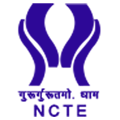Roles and Responsibilities
Teacher Professional Development involves a continuous process of reflection, learning, and action to further a teacher’s knowledge and skills, leading to enhanced teaching practices that positively impact students’ learning. “Professional Development of teachers is not an event, rather it is a continuous process.” It aims to improve teachers and their practice by adopting a holistic approach to developing the teacher as a professional practitioner.
Broad Aims of Teacher Professional Development Programmes
- Explore, reflect on, and develop one’s own practices.
- Deepen knowledge and stay updated about one’s academic discipline or other areas of the school curriculum.
- Research and reflect on learners and their education.
- Understand and update oneself on educational and social issues.
- Provide training on new strategies, techniques, resources, the latest knowledge and skills, new technologies, and teaching methodologies for improving practice and enhancing student outcomes.
- Organize workshops, seminars, short-term focused sessions, conferences, face-to-face trainings, online trainings, webinars, mentoring and coaching, virtual and hybrid workshops, AI-powered personalized learning, etc.
Developing Master Trainers for Teacher Professional Development
Master trainers play a pivotal role in disseminating knowledge and skills within educational systems. They are responsible for training and mentoring other educators, ensuring consistent delivery of quality instruction in the following ways:
- Content expertise with strong pedagogical skills
- Effective communication with leadership qualities
- Openness to learning and willingness to continuously adapt
Teacher Professional Development in Content and Pedagogy
Training teacher trainers in content and pedagogy involves equipping them with the knowledge, skills, and strategies to effectively impart subject matter knowledge to teachers. This is crucial for ensuring that teachers are well-prepared to deliver high-quality instruction to their students. The core content areas include:
- Subject-Specific Knowledge: Deep understanding of the subject matter and ability to break down complex concepts into simpler ones
- Pedagogical Content Knowledge (PCK): Understanding of how to teach specific content effectively
- Instructional Strategies: Including direct instruction, inquiry-based learning, cooperative learning, and problem-based learning
- Assessment and Evaluation: Developing both formative and summative assessments
- Differentiated Instruction: Adapting instruction to meet diverse learner needs using various instructional strategies
- Technology Integration: Utilizing technology tools to enhance teaching and learning
Teacher Professional Development for Elementary and Secondary Teachers
In-service teacher training is essential for the ongoing professional development of elementary and secondary teachers. It offers opportunities to update knowledge and skills, improve teaching practices, and stay current with educational trends.
Key Areas of Focus:
- Pedagogical Skills & Effective Teaching Strategies
- Differentiated Instruction
- Assessment and Evaluation
- Classroom Management
- Technology Integration
- Digital Literacy and Online Learning
- Special Education and Inclusion
- Social-Emotional Learning
Planning and Management in Teacher Professional Development
In-service teacher training is a crucial aspect of professional development, ensuring educators stay updated with the latest pedagogical strategies, curriculum developments, and technological advancements.
Key Steps in Planning and Management:
- Need Assessment
- Identify Gaps: Conduct surveys, interviews, or focus groups to identify specific training needs
- Content Selection: Choose relevant topics based on needs and training goals
- Delivery Methods: Decide on delivery formats such as workshops, online courses, or blended learning
- Materials Development: Create high-quality training resources (handouts, presentations, online materials)
- Engaging Activities: Use diverse teaching methods like lectures, group work, field trips, etc.
- Evaluation and Feedback
- Pre- and Post-Training Assessments: Measure knowledge/skill improvements
- Feedback Forms: Collect participant feedback to identify improvement areas
- Follow-up: Monitor classroom application of new skills and knowledge

